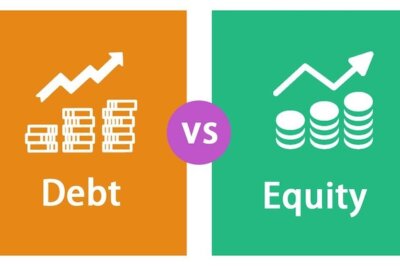Debt and equity funds are two key types of investment vehicles that individuals and institutions utilize to build wealth and achieve financial goals. While they operate on different principles and carry varying levels of risk, both debt and equity funds play significant roles in diversifying investment portfolios and generating returns. This article provides a comprehensive overview of debt and equity funds, exploring their characteristics, advantages, and considerations for potential investors.
I. Debt Funds:
Debt funds, also known as fixed income funds, are investment vehicles that pool money from multiple investors to lend it to governments, corporations, or other entities. These funds invest in fixed-income securities such as government bonds, corporate bonds, debentures, and other debt instruments. Here are some key points to understand about debt funds:
1. Objective: The primary objective of debt funds is to generate regular income for investors while preserving capital. They aim to achieve this by investing in low-risk instruments that provide fixed returns.
2. Risk and Return: Debt funds generally carry lower risk compared to equity funds. They provide stable returns, as the interest income from the underlying debt instruments forms a significant portion of the total returns. However, the returns on debt funds are typically lower than those of equity funds.
3. Types of Debt Funds: Debt funds can be further categorized based on the duration of the underlying securities. Some common types include liquid funds, ultra-short-term funds, short-term funds, income funds, and gilt funds.
4. Liquidity: Debt funds offer relatively high liquidity, allowing investors to redeem their investments partially or in full at any time. However, certain types of debt funds may have lock-in periods or exit loads.
5. Factors Affecting Performance: Factors such as interest rate movements, credit quality of the underlying securities, and macroeconomic conditions can impact the performance of debt funds.
II. Equity Funds:
Equity funds, also known as stock funds, are investment vehicles that pool money from multiple investors to invest in shares or stocks of companies. Equity funds provide investors with the opportunity to participate in the growth and profitability of the underlying companies. Here are some key points to understand about equity funds:
1. Objective: The primary objective of equity funds is capital appreciation. These funds aim to generate higher returns over the long term by investing in a diversified portfolio of stocks across different sectors and market capitalizations.
2. Risk and Return: Equity funds carry higher risk compared to debt funds due to the volatility of stock markets. However, they also have the potential for higher returns over the long run, as the value of the underlying stocks can appreciate significantly.
3. Types of Equity Funds: Equity funds can be further categorized based on various factors such as investment style (growth funds, value funds), market capitalization (large-cap, mid-cap, small-cap), and sector-specific funds.
4. Diversification: Equity funds offer diversification benefits as they invest in a wide range of stocks. This diversification helps reduce the impact of individual stock price movements on the overall portfolio.
5. Factors Affecting Performance: The performance of equity funds is influenced by factors such as company-specific factors, industry trends, market sentiment, and overall economic conditions.
Conclusion:
Debt and equity funds provide investors with different risk-reward profiles and serve distinct investment objectives. Debt funds offer stability, regular income, and lower risk, making them suitable for conservative investors seeking income generation. On the other hand, equity funds provide the potential for higher returns, albeit with higher volatility, making them suitable for investors with a long-term investment horizon and a higher risk appetite. As with any investment decision, it is crucial to consider one’s financial goals, risk tolerance, and investment horizon before choosing between debt and equity funds. Seeking professional advice can also help investors






Leave a Reply